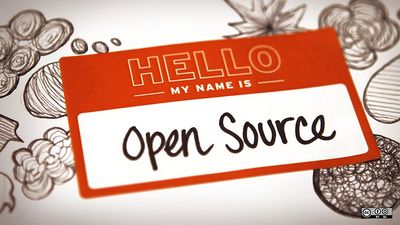AS4ODFL/Guide/FOSS
The Digital skills for OER sharing online course is based entirely on Free and Open Source Software, both for the software packages we recommend for course participants to use for authoring OER, but also the online platforms used for delivery and communication of this online course.
Free and Open Source Software programs for course participants
There are three reasons why we recommend the use of FOSS programs for this course:
- We do not want students to incur any costs for purchasing proprietary software licences in order to participate.
- We aim to increase opportunities for students to widen their digital skills by learning to use new software packages - after all 'digital skills' is in the title of the course!
- As a course focusing on open education, we extend the principles of openness to include the tools we recommend for learners.
You may incur data costs for downloading the software. In cases where this may be a challenge, we recommend that you have one person or institution download the software, which you can then copy and share locally offline using a USB flash drive.
For this course, we have based the teaching materials on using:
- LibreOffice Writer (for word processing)
- LibreOffice Draw (for graphics)
- Audacity (for recording audio)
- OpenShot (for editing video files)
Instructions for downloading, installing, and using the packages are provided in the corresponding sections of the course materials.
Please note, you may choose to use alternate software packages which you are familiar with for the different tasks and learning challenges. There is no requirement to use the software packages we recommend; however, we do not provide instructions for using alternate packages. You can search online for instructions for using alternate packages.
Free and Open Source Software used for delivering this course
The DS4OERS online course is delivered entirely using Free and Open Source Software. Key reasons and benefits include:
- Ensuring that no learner is required to share their personal data with for-profit companies in order to take part in the learning experience
- Avoiding the use of algorithms which filter what information individual users see in our course feeds
- Eliminating commercial advertisements on any websites hosted by the course provider
- Providing the ability for any institution or Ministry of Education to replicate this course delivery infrastructure in their own countries.
The main Free and Open Source Software applications used for online delivery of this course include:
- WordPress Multi-site (for publishing this course website)
- Discourse (for hosting forum discussions)
- Mastodon (for social media interactions)
- Moodle (Learning management system used for submitting assignments, administering an online test, and issuing digital badges and the certificate of completion)
- Mautic (for distributing the automated course instructions via email)
All the web servers for hosting these online applications use a variety of FOSS technologies, for example: Ubuntu (a Linux-based operating system), NGINX (web server software), PHP (scripting language used for generating web pages), and a range of open source database technologies including MariaDB, PostgreSQL, CouchDB, and others. You are not expected to know what technologies are used for providing these online courses, other than knowing everything you see is powered by Free and Open Source Software which can easily be replicated in your country.
